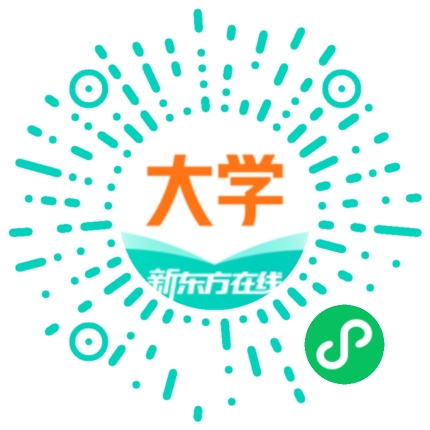英语课程 聚划算
1w人已参与
免费课大全
去体验
英语水平测试HOT
去试听
自然拼读&音标
去报名
煎蛋口语课名师
自信开口说
去试听
听说读写训练营
高效
英语1V1辅导
定制
翻译专业资格
好课
优惠券领取
免费
新概念英语网课
随报随学

Staying up late ("Shousui")
熬夜(“守岁”)
Shousui means to stay up late or all night on New Year's Eve. After the great dinner, families sit together and chat happily to wait for the New Year’s arrival.
守岁意味着除夕夜不睡觉。年夜饭后,家人聚坐一起,愉快聊天,等待春节的到来。
New Year Feast
年夜饭
Spring Festival is a time for family reunion. The New Year's Feast is "a must" banquet with all the family members getting together. The food eaten on the New Year Eve banquet varies according to regions. In south China, It is customary to eat "niangao" (New Year cake made of glutinous rice flour) because as a homophone, niangao means "higher and higher every year". In the north, a traditional dish for the feast is "Jiaozi" or dumplings shaped like a crescent moon.
春节是与家人团聚的时间。年夜饭是所有家庭成员聚在一起“必须”的宴会。除夕宴会上吃的食物根据不同的地区各不相同。在中国南方,习惯吃“年糕”(糯米粉制成的新年糕点),因为作为一个同音字,年糕意味着“步步高升”。在北方,年夜饭的传统饭是“饺子”或像月牙儿形的汤圆。
Setting Firecrackers
燃放鞭炮
Lighting Firecrackers used to be one of the most important customs in the Spring Festival celebration. However, concerning the danger and the negative noises that lighting firecrackers may bring, the government has banned this practice in many major cities. But people in small towns and rural areas still hold to this traditional celebration. Right as the clock strikes 12 o'clock midnight of New Year's Eve, cities and towns are lit up with the glitter from fireworks, and the sound can be deafening. Families stay up for this joyful moment and kids with firecrackers in one hand and a lighter in another cheerfully light their happiness in this especial occasion, even though they plug their ears.
放鞭炮曾是春节庆祝活动中最重要的习俗之一。然而,担心燃放鞭炮可能会带来危险和烦人的噪音,政府已在许多大城市下令禁止燃放鞭炮。但在小城镇和农村地区的人们仍然坚持这种传统的庆祝活动。除夕夜一旦时钟撞响午夜12点钟,城市和乡镇都被烟花的闪闪光芒映亮,鞭炮声震耳欲聋。一家人熬夜就为这个欢乐的时刻,孩子们一手拿鞭炮,一手拿火机兴高采烈地点放着他们在这个特殊节日的快乐,尽管他们吓得捂着耳朵。
New Year Greetings(Bai Nian)
春节的问候(拜年)
On the first day of the New Year or shortly thereafter, everybody wears new clothes and greets relatives and friends with bows and Gongxi (congratulations), wishing each other good luck, happiness during the new year. In Chinese villages, some villagers may have hundreds of relatives so they have to spend more than two weeks visiting their relatives.
On the first day of the new year, it’s customary for the younger generations to visit the elders, wishing them healthy and longevity.
在春节第一天或此后不久,大家都穿着新衣服,带着弓向亲戚和朋友打招呼并恭喜(祝贺),彼此祝愿在新的一年里好运,幸福。在中国农村,有些村民可能有数以百计的亲戚,所以他们不得不拿出两个多星期来走亲访友。
春节第一天,按习惯,小一辈人要拜见老一辈,祝愿他们健康长寿。
因为探亲访友花费大量时间,所以,现在有些忙碌的人就送春节贺卡来表达他们的良好祝愿,而不是亲自去拜访。
Because visiting relatives and friends takes a lot of time, now, some busy people will send New Year cards to express their good wishes rather than pay a visit personally.
压岁钱
Lucky Money
这是孩子们的父母和祖父母给他们作为春节礼物的钱。压岁钱据说能带来好运,能驱魔;因此,就有了“压岁钱”的称呼。父母和祖父母先把钱放入特制的小红包里,年夜饭后或当孩子们来拜年时,将红包发给他们。他们之所以要把钱放到红包里,是因为中国人认为红色是个幸运色。他们想给自己孩子既有压岁钱还有幸运色。
It is the money given to kids from their parents and grandparents as New Year gift. The money is believed to bring good luck, ward off monsters; hence the name "lucky money". Parents and grandparents first put money in small, especially-made red envelopes and give the red envelopes to their kids after the New Year's Feast or when they come to visit them on the New Year. They choose to put the money in red envelopes because Chinese people think red is a lucky color. They want to give their children both lucky money and lucky color.
本文关键字: 春节习俗
 今日特价
今日特价

课时 : 5 ¥19.9

课时 : 2 ¥19.9

课时 : 30 ¥19.9

课时 : 30 ¥19.9

课时 : 30 ¥19.9

课时 : 30 ¥19.9

课时 : 30 ¥19.9

课时 : 30 ¥19.9

课时 : 30 ¥19.9

课时 : 30 ¥19.9

课时 : 30 ¥19.9

课时 : 30 ¥19.9

课时 : 30 ¥19.9

课时 : 30 ¥19.9

课时 : 30 ¥19.9

课时 : 30 ¥19.9

课时 : 30 ¥19.9

课时 : 30 ¥19.9

课时 : 30 ¥19.9

课时 : 30 ¥19.9

课时 : 3 ¥1

课时 : 2 ¥9.9

课时 : 2 ¥9.9

课时 : 2 ¥19.9

课时 : 2 ¥19.9

课时 : 2 ¥29

课时 : 5 ¥89

课时 : 20 ¥89
 免费试听
免费试听

时长 : 3:54 主讲 : 金格妃

时长 : 5:22 主讲 : 金格妃

时长 : 3:54 主讲 : 金格妃

时长 : 3:54 主讲 : 金格妃

时长 : 26:58 主讲 : 乔迪

时长 : 3:54 主讲 : 金格妃

时长 : 27:51 主讲 : 金格妃

时长 : 27:51 主讲 : 金格妃

时长 : 26:58 主讲 : 乔迪
 推荐阅读
推荐阅读
五一劳动节来了,小长假开始了,再愉快的度过假日的同时,当然也不要忘了学习,今天小编给大家整理了2021年五一劳动节英语作文大全,一
来源 : 网络 2021-05-03 10:48:00 关键字 : 五一劳动节英语作文
五一劳动节马上就要到了,也意味着小长假马上就要到来了,再愉快的度过假日的同时,当然也不要忘了学习,今天小编给大家整理了2021年五
来源 : 网络 2021-05-02 12:46:00 关键字 : 五一劳动节英语祝福语
五一劳动节马上就要到了,也意味着小长假马上就要到来了,再愉快的度过假日的同时,当然也不要忘了学习,今天小编给大家整理了2021年五
五一劳动节马上就要到了,也意味着小长假马上就要到来了,再愉快的度过假日的同时,当然也不要忘了学习,今天小编给大家整理了2021年五
五一劳动节马上就要到了,也意味着小长假马上就要到来了,再愉快的度过假日的同时,当然也不要忘了学习,今天小编给大家整理了2021年五
来源 : 网络 2021-05-02 10:44:00 关键字 : 五一劳动节
五一劳动节马上就要到来了,五一是劳动人民的节日,俗话说劳动人民最光荣,今天新东方在线小编就来给大家分享一下2021年五一劳动节有关
来源 : 网络 2021-05-01 13:42:00 关键字 : 五一劳动节有关的句子
五一劳动节马上就要到来了,五一是劳动人民的节日,俗话说劳动人民最光荣,今天新东方在线小编就来给大家分享一下2021年关于五一劳动节
来源 : 网络 2021-05-01 10:41:00 关键字 : 五一劳动节的英文介绍
2021年五一劳动节放假几天? 按照2020年劳动节放假5天,2021年可能也会放假5天,2021年4月28日(周三)-年5月2日(周日)放假,共5天,4
来源 : 网络 2021-04-30 10:41:36 关键字 : 年五一劳动节放假几天
2021年五一劳动节放假时间表 按照2020年劳动节放假5天,2021年可能也会放假5天,2021年4月28日(周三)-年5月2日(周日)放假,共5天,4
来源 : 网络 2021-04-30 10:40:50 关键字 : 五一劳动节放假时间表
五一劳动节马上就要到来了,五一是劳动人民的节日,俗话说劳动人民最光荣,那么你知道五一劳动节到底是怎么来的么?今天新东方在线小编
来源 : 网络 2021-04-30 10:40:01 关键字 : 五一劳动节的由来
